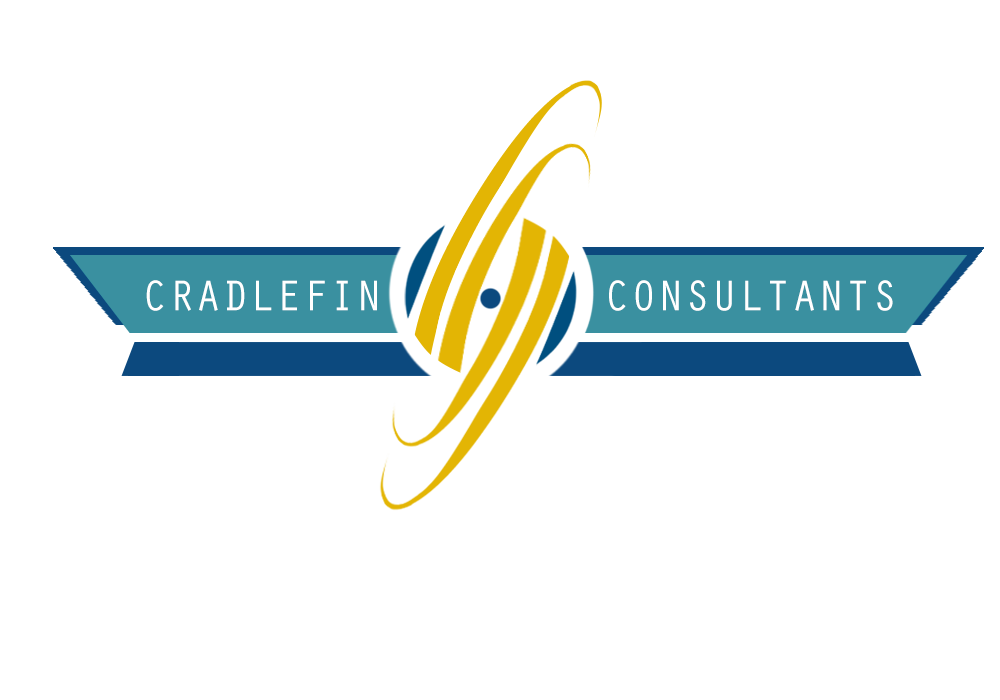The last few years have seen a significant shift in the world of work. It is easy to think that the Covid-19 pandemic has fuelled every change; it hasn’t. Though it has opened our thinking about what we as human beings want in our lives.
Digital technology and A.I. have elevated our ability to interact in unprecedented ways. Disruptive business models, the gig economy, political and societal upheaval are happening at an extraordinary rate. The D.E.I. agenda had started long before that terrible day in May 2020 when George Floyd was murdered.
Remote working became a viable option much earlier than the first global lockdown we all experienced. And according to the Microsoft Workplace trends report, upwards of 75% of our workforce now wants access to some level of flexibility in the way they work. At the end of the last decade, we were all obsessed with the Millennial cohort of our workforce. Yet in 2025, Gen Z will make up 25% of our employees; approaching 50% of this group have indicated they would leave their current employer if flexible working weren’t an option.
No wonder workforce tension is rising with key skills missing from the workplace and nearly half of the workforce saying they plan to move in the next two years. As a leader and hiring manager in your current company, it is important to understand how these global shifts might impact the way you hire this year.
Hybrid, Home and Flexible Working
Let’s start with one of the biggest trends to hit recruitment, with potentially the biggest impact on hiring the team you want, hybrid, home, and flexible working. A well-known phenomenon is that life moves in cycles and remote working most certainly fits this category. A fascinating fact for you; before the Industrial Revolution, going back to the start of the 5th century, there were over 1,300 years of home-based work.
Over the last 140 years, especially during the 20th century, work has been organised from offices and plants as we moved through the different ages and the first technology developed. Technology to facilitate remote working has been with us for years. The biggest barrier to the rapid expansion of remote work has not been a lack of access to high-speed Internet or better technology. It’s changing organisational and managerial strategy and implementation. After all, traditional ‘management’ practices are based on office-based employees and company cultures.
Though a strange time during the first months of the pandemic, more workers were exposed to working from home and started to appreciate its many benefits including-zero commuting and zero costs, the ability to improve concentration and focus, greater flexibility, a true work-life balance, and higher productivity. The benefits aren’t all aligned to employees either. An employer can reduce expenses for office space, increase productivity and communication, have better staff retention, and recruit talent outside of a local commutable distance.
Therefore, it’s no wonder that the Microsoft Work Trends report based on data from over 32,000 respondents earlier this year highlighted that 75% of job seekers are looking for flexible work arrangements and that over 46% of the global workforce are considering leaving their employer. No doubt, both of these data points are connected. Though not every sector can fully embrace the home and hybrid model, every employer can increase their options for flexible working in their team.
Pre-December 2019, flexible working opportunities were rarely raised as we talked to candidates. This has changed significantly this year with many candidates discussing the opportunity for remote working or some level of flexibility. Summary: Therefore, be aware that candidates will continue to ask for flexible working arrangements and employers that offer flexibility will win the hiring game.
Speed Up Your Hiring Process and make Compelling Offers Fast
We are currently part of a skill-short economy. The years of reduced funding and investment in training and developing our workforce has taken their toll across all sectors and especially the Building Products marketplace. You will read many articles and posts that appear to sensationalise the issue as they refer to the ‘war for talent’ and ‘the great resignation’ predicted for 2023 and beyond. The challenge is that these issues are real.
There is a huge skills gap, and consequently, skilled candidates are in demand. Though all employers want their new hires to have a positive attitude and an enthusiastic approach, if they can’t perform specific skills you will have problems maintaining any level of company performance.
Recruiting trained and skilled staff is possible, only remember:
- Your employer brand needs to communicate ‘why you’ attractively and honestly
- Your offer must be compelling; think compensation and benefits above the norm, ongoing training, and development
- Remote and flexible working is one of the biggest drivers for job acceptance today
- Your job offer could be countered by their current employer you can read our previous report
- Candidates may have other offers they are considering; especially if you aren’t using a specialist building products recruiter
- Good candidates don’t wait
One of the biggest recruiting challenges is companies drawing out their hiring and decision-making process. A recent article on Undercover Recruiter, a respected online recruitment website, revealed that 49% of candidates declined a job offer because they accepted an offer from another company.
Summary: First of all, up-level your offer from average to above average. Though many experienced recruitment companies like ourselves can persuade good candidates to work with us exclusively, you as the client must decide and offer fast or risk losing the candidates you want.
Virtual Recruiting Is The new Norm
Virtual recruiting became a process over ten years ago and was utilised when multiple parties were involved in the hiring process. This technique continued to develop as an advancement to telephone screening. As the technology improved, so did the uptake and the results both candidates and clients experienced throughout the process. In 2020 many clients, candidates and, in honesty, recruiters got their first true experience of virtual recruiting and what a time saver it could be.
Interviewing can be expensive and time-consuming. The simple task of scheduling an interview can turn into an enormous headache, making you go back and forth for days, or even weeks, as you try to find a time that’s convenient for all participants. This is not easy for the candidate, either. Often, they need to take time off for a first stage interview that they might not even get through; it is no wonder candidates like video interviews too, based on the time they save in wasted interviews for them.
Regarding first-round interviews, pre-recorded video interviews provide a better first-round screening because recruiters have more insight into the candidates. Using a structured interview guide allows you to assess candidates equally and in various dimensions: you can evaluate what they are saying and how they are saying it (body language, facial expressions, etc.). This also allows you to make data-driven decisions and compare candidate responses side by side. With video interviews, you can evaluate candidates based not only on their CV (knowledge and experience) but also on their skills.
A final note on data is that video interviewing can reduce hiring time by over 70%; it is no wonder that it is gaining popularity.
Many recruitment companies now invest in video software that takes the whole process to a new level that is more effective than a Zoom or M.S. teams meeting.
Imagine a group of candidates being interviewed by an experienced recruiter where you can then watch each of their responses. Observing this process after the event will save both time and potentially the planet as travel time is minimised.
Summary: Technology helps to improve the recruitment process on all levels, with video being especially useful.
Diversity, Equality and Inclusion
A diverse and inclusive recruiting process accepts all applicants and welcomes, rather than excludes, a varied range of candidates. The Black Lives Matter movement and the cultural shift that has happened since has changed the working – and recruiting – landscape. If you haven’t included updating your recruitment process to be diverse, equitable, and inclusive, now is the time.
All applications should be considered equally:
- Race
- Sex
- Age
- Background
- Disability
- Sexuality
D. E. and I is a wide-ranging topic, and the fact that it’s still a relatively ‘new’ H.R. concept means some organisations struggle to get it right. If you would like a copy of our D.E.I. Employers are increasingly turning to recruitment companies like ourselves to provide a more inclusive recruitment process.
For attracting the right candidates, the values and ethics of their employer are of growing importance. The best talent will not apply to your roles, no matter how suited they are or how competitive your salary is if you lag behind being progressive. Additionally, due to Covid-19, the inclusivity with which organisations view those with mental health problems and their wellness programmes are also of growing importance.
Candidates want to know that the employers they are considering for their next career move are considerate and accommodating to employees from all walks of life. Are you promoting D.E.&I in your recruitment process? The following are ways to introduce inclusivity to your hiring process:
- Make sure your job descriptions use inclusive language and are not discriminatory, for example, stating that a degree is needed when other qualifications or experience will suffice
- Broaden your search to include a more diverse pool of talent
- Continually review your shortlists and shortlisting process to ensure it is fair
- Train managers on unconscious bias
- Make reasonable adjustments to your job roles and interview process to avoid discrimination
Communicate Your Caring Employer Brand and Employer Proposition Everywhere
As a respected recruiting partner for the NHS workforce, part of our role is to profile our clients to candidates. However, no matter how skilled we are, it becomes a challenge when a company’s employer brand is poor. All organisations need to understand what their employees, future employees, stakeholders, and customers think of them. Employer branding involves applying a similar approach to people management and describes how an organisation markets what it offers to potential and existing employees.
Organisations can use an employer brand to help them compete effectively in the talent market and improve employee engagement and retention. A recent report from the CIPD found that of the organisations that have taken steps to improve employee retention, 19% of those have promoted their employer brand to employees. A strong employer value proposition communicates what the employer can offer and what quality candidates are looking for in their future employer.
Our employees want to be valued, looked after and developed. Employee well-being has been a conversation that is no longer ignored throughout the last two years, yet some organisations are slow to change their culture. Part of the Microsoft WorkPlace Trends report shared how some employees have decided to ‘move’ because of the lack of compassion they experienced during the Covid-19 pandemic. This theme is set to continue. The CIPD, the professional body for H.R. and people development in the U.K., shared that presentee-ism and leave-ism are widespread, with many employees feeling like they can’t switch off.
More organisations are tackling these problems compared with last year, yet forty per cent of organisations experiencing these issues are taking no action whatsoever. As we mentioned earlier, we are in a skill short market with an ageing workforce adapting to increased technology. The good news is our employees do understand this and are looking to their employers for help. For example, in today’s market, employees want to move into a role that can help them improve their skills and advance careers. If an employer can include their commitment to support professional development as part of their E.V.P., it will be easier to recruit people who value their professional growth.
In a workforce marketplace where talent is in short supply and employees want and expect more from the employer, a strong employer proposition that is easily accessible on multiple channels is vital. Specialist recruiting partners will become critical to your business. It is well-documented that when markets move and shift, there is an uptake in consultancy services as different organisations navigate a new business landscape. IBIS World in the U.S. shared the latest growth analytics in the consultancy market, which revealed an increase of 1.6% a year in 2016 to 8.6% in 2021.
The recruitment sector is a recognised and respected part of the consultancy world; therefore, it is logical that companies from small S.M.E.s and large corporates, are turning to companies like ourselves to support their hiring process. We are in a skill-short market where talent pipelines need to be developed through networks and understanding of the market, which takes time that many internal hiring departments don’t have.
The candidate gold is hidden away from the public view, though they will be part of a recruiters network that they have taken time to build. These individuals don’t move companies on a whim, and it is not unusual for them to be in conversation with people like ourselves for years before they move; after all, this is what our clients pay for. Therefore, don’t be surprised if you are approached more in 2023 by recruiters representing the ideal candidate for your team.
A specialist recruitment company will understand the marketplace in general and get to know you, the client, well. They will take time to comprehend your culture, team dynamics, role challenges, onboarding process and how it’s measured. They also understand in depth all the legal processes involved with contracting, temporary workers and D.E.I. compliance. Building great client relationships is critical to a recruiter – it will enable them to match the ethics and values of your company with those of the candidates, ensuring the right fit into your organisational culture.
They understand what candidates want and what parts of the offer are ‘deal’ makers or breakers; so critical in a market where candidates have multiple offers they are considering. The last few years have seen a significant change in the hiring landscape. Video interviewing, D.E.I. and employer value propositions became increasingly important pre the pandemic, which only increased their relevance and implementation.
Summary
After the unpredictable two years we have experienced, normality will start to return, though likely slower than we would all want. 2023 will see a continuation of an unpredictable human capital landscape. Good people with the skill levels required will be sought after. This year, employees will move around more as the ‘great resignation’ finally happens. Specialist recruiters will continue to have increased demand from their clients and the candidates they represent. Employers will need to work ‘harder’ to demonstrate that they are the organisation to work for because of their compensation package and flexible approach. Another interesting year ahead for all of us.
Good Luck!
Get in touch with Cradlefin Consultants team a premier destination for talented candidates and clients committed to recruiting and developing top tier professionals if you need help with your recruitment: recruitment@cradlefinconsultants.com







